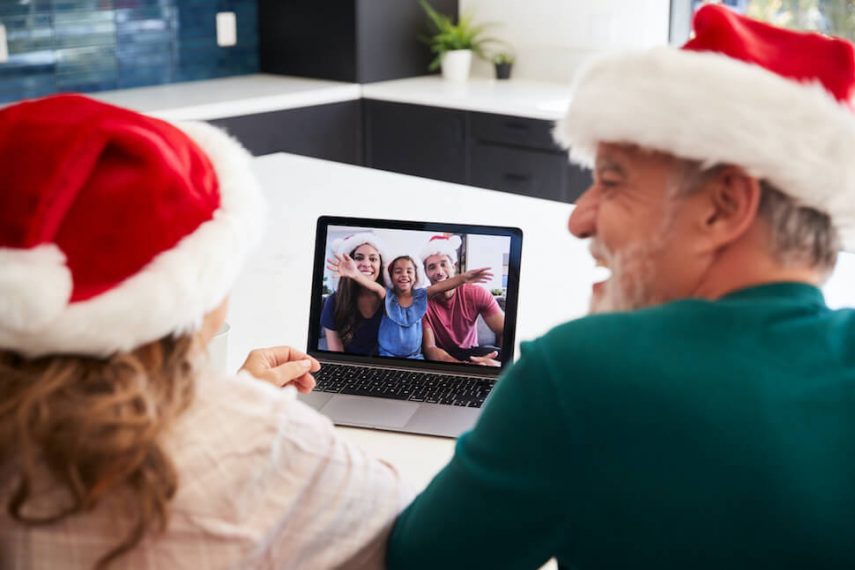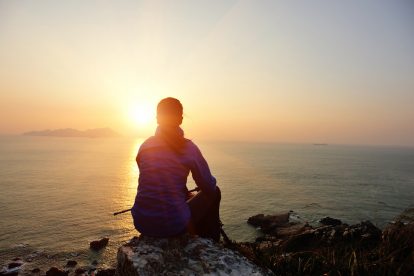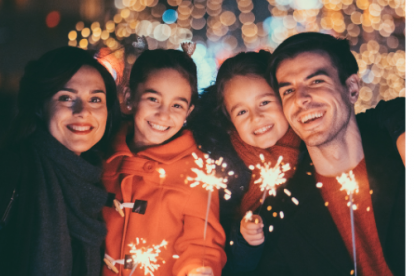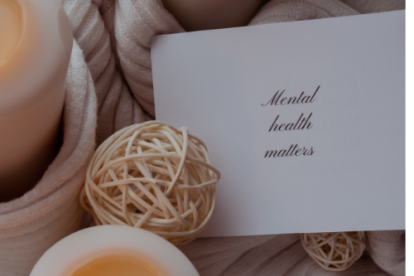Is It Safe to Spend the Holidays With My Family?

Both physical and mental health are at risk this year more than ever. Holiday gatherings have the potential to become super spreader events, while the usual seasonal depression and anxiety spike due to the pandemic and its dangers. It’s important to know the risks of going ahead with gatherings this year, to lower risks if your family chooses to get together, and to take steps to protect and manage mental health.
The coronavirus pandemic has changed the way we do so many things. One of the hardest changes to swallow is how we celebrate the holidays. This is already a stressful time of year, with nearly two-thirds of adults reporting that they feel elevated stress during the holidays.
Now, with COVID-19 diagnoses soaring once again, most people have even more stress and worry. And, of course, there’s the question of whether or not you can get together with family. The experts have advice on making this decision, how to minimize risks if you do gather, and how to manage and protect your mental health.
Should You Travel, or Gather? Advice From Experts
Many people travel for the holidays, and those who don’t usually get together with family for holiday meals and celebrations. This year, the pandemic is shifting traditions. Many people worry that it isn’t safe to bring different households together. It’s a valid concern, according to health experts.
The official stance of the Centers for Disease Control and Prevention (CDC) is that people should stay home. The CDC states that this is the safest way to celebrate this year, to avoid gatherings with people from more than one household. Gatherings increase the risk of getting COVID-19 or spreading it to others.
The CDC urges everyone to change their usual plans this year. People who should absolutely not attend gatherings are those at an increased risk for severe illness and those diagnosed with, showing symptoms of, or exposed to COVID-19.
Are Any Holiday Gatherings Safe?
The only truly safe gathering this year is a virtual one. However, there are several factors that make a gathering more or less risky. If you and your family are weighing your options, consider these risk factors:
- Community COVID-19 levels. Your gathering is riskier if local levels of infection are higher. If you live somewhere with low numbers, the risk of someone at your function having COVID are lower.
- Location and duration. An outdoor gathering is safer than an indoor event. The longer the gathering, the bigger the risk of spreading the illness.
- Travel exposure. If anyone travels to get to a gathering, they add to the risk of being exposed and exposing others. This includes bus, train, and air travel, as well as car travel with stops at gas stations or rest stops.
- Number of people and spacing. The more people at a gathering, the bigger the risks. A cramped space also increases the risk as compared to an event in a large space where people can spread out.
- Individual behaviors. Difficult to control are the behaviors of each person attending a holiday event. You cannot guarantee that everyone will have properly isolated before gathering.
How to Lower the Risks of a Gathering
If you consider all the factors and decide to hold a family gathering, you can take steps to make it safer. Be aware that no gathering this year is safe if it includes people from more than one household. There will be a risk no matter what steps you take to keep each other safe. Here are some tips from experts to reduce the risk:
- Keep events small and with people you trust.
- Establish ground rules ahead of time for what you expect attendees to do and how to behave. For instance, agree on a quarantine period of 10 days before the event.
- If you live somewhere warm, hold the gathering outside.
- For indoor events, wear masks when not eating, and stay safely distanced from people not in your own household.
- Avoid singing or shouting.
- Provide hand sanitizer and wash hands regularly throughout an event.
- Stay close to home and avoid traveling.
- Consider getting everyone tested for COVID-19 before gathering. This is especially important for any college students coming home from campus.
Begin Your Recovery Journey Today!
844-252-8202Mental Health Challenges During the Holidays
Physical safety is not the only important consideration this year. Holiday stress, anxiety, depression, and other mental health issues are always elevated this time of year, but the pandemic has worsened them for many.
The most vulnerable are people with mental illness, whose symptoms are likely to worsen during the holidays. Even those without a diagnosis may experience more feelings of sadness and worry than usual. The holidays put a lot of pressure on people to meet expectations that may not be reasonable.
This year, an added factor is the pandemic. You may be feeling lonely, isolated, and sad because you miss family or cannot gather as usual. This year has been long and difficult, and many people feel at their wits’ end with the ongoing crisis and its challenges. Another added factor is politics. Never an easy topic, this year people are more divided than ever, leading to stressful confrontations.
How to Protect Your Mental Health This Year
It is essential to acknowledge these mental health challenges and that everyone is impacted, not just those with a mental illness diagnosis. By recognizing the problem, you can be proactive about protecting your own and others’ mental health.
If loneliness and isolation trouble you the most, start planning for virtual events with friends and family. Plan a mix of one-on-one, small group, and larger video conferencing sessions so you can see everyone and benefit from intimate chats with friends.
If the risks of COVID-19 cause you stress, set limits and boundaries with friends and family. Say no to events that you don’t feel will be safe. Don’t worry about hurting feelings. Also set boundaries with people who contribute to your stress over the political situation.
If you do have small, low-risk gatherings, set rules for mental as well as physical safety. Make talk about COVID and politics off-limits. Don’t be afraid to be assertive about ending any conversations or arguments that begin in spite of your rules.
Embrace the positive if the altered holidays have left you disappointed and sad. A quieter holiday season is not all bad. Enjoy the lower stress and focus on the money you’re saving. Be festive, even if you have to do it at home, by decorating, watching holiday movies, and making your favorite Christmas dinner.
If you’re worried about someone else’s mental health right now, reach out. Even if you aren’t worried, if you know someone who is alone due to COVID, give them a call or set up a virtual chat.
Supporting Older Adults
Among the most vulnerable to both COVID-19 and mental health issues right now are the elderly. Be especially aware of the risks of the illness to older friends and family members. Also know that they may be struggling more than others with loneliness, isolation, and related mental health challenges.
Make extra efforts to reach out to senior family members. If they cannot figure out video conferencing, call them every day just to chat and check in. Consider bringing the family over to their home or assisted living facility to visit through a window. Just seeing your faces can make a big difference to their mood.
Another way to cheer up an isolated senior family member is to send care packages. Leave them holiday cookies or even a Christmas dinner. Send videos from family and friends with positive messages. Give them decorations that are easy to put up or decorate the outside of their home for them.
The holidays are always stressful and often very difficult for some people. The pandemic combined with the usual seasonal mental health challenges is like a ticking time bomb. The result does not have to be devastating, though. Be aware of the difficulties, be proactive, be safe, manage your mental health, and reach out to cheer others, and everyone will make it through to a better new year.
Our Addiction, Mental Health, and Co-Occurring Disorder Facilities
Constellation Behavioral Health is proud to be a leader and innovator of treatment programs for alcohol and drug addiction, mental health, and complex co-occurring disorders. Our integrated, shared system of care ensures quality of care across all of our facilities, with a distinct focus on providing a robust differential diagnosis, cultivating personal agency, and working closely with families and healthcare providers to ensure the best chance for lasting recovery. Coordination and collaboration of staff across our different facilities contribute to consistency of quality and shared treatment philosophies.
Alta Mira Treatment Programs
Alta Mira’s world-class clinical team offers comprehensive assessment and treatment for men and women struggling with drug and alcohol addiction and co-occurring mental health disorders. We provide safe, compassionate care in a serene residential setting overlooking the San Francisco Bay where clients can focus on their treatment and recovery.
BrightQuest Treatment Centers
Located in Nashville and San Diego, BrightQuest specializes in complex psychiatric conditions, providing compassionate care to a vastly underserved population. With our unique therapeutic community model, BrightQuest is the long-term residential solution you’ve been looking for to provide your loved one with the tools necessary to live a healthier and more independent life.
Bridges to Recovery
Our Bridges to Recovery location in Los Angeles is designed for men and women struggling with mental health disorders who are seeking a safe alternative to hospitalization for their care. Our clinical expertise and nurturing home-like residences provide clients a safe and supportive environment to recover and heal.
> Alta Mira Recovery: Luxury Alcohol & Drug Addiction Treatment
> BrightQuest Treatment Centers: Residential Mental Health Rehab






